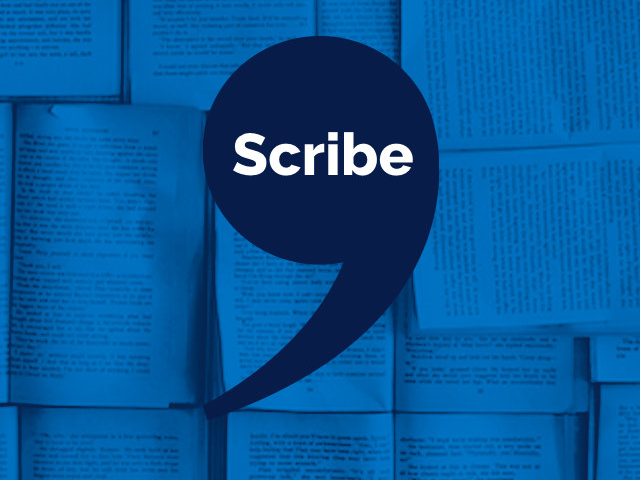Christine Wicker’s next book will be about how FDR’s spirituality guided him as he led the nation through depression and war, changing America forever. It will be published by the Smithsonian Press. Her seventh and most recent book, My Spirit Took You In, is a memoir about the fiancée of Thomas Eric Duncan, America’s first Ebola victim. Among her work is a true crime book about a serial killer, an investigative expose of American evangelical power, and a New York Times bestseller that tells the story of Lily Dale, the country’s only town where everyone talks with the dead. Barnes & Noble honored her as a member of their Discover New Writers series. For 17 years, she was an award-winning reporter and columnist with The Dallas Morning News.
Christine is teaching a memoir writing class for the Writers’ League called “Finding the Best Stories of Your Life” on Saturday, March 12th, at ACC Highland Campus. Read the interview below and visit the class page to learn more.
 Scribe: How did you get into memoir writing?
Scribe: How did you get into memoir writing?
Christine Wicker: I’d written a true crime book with a Dallas policeman at the same time that The Dallas Morning News was killing its Sunday magazine where I was a columnist and senior writer. I was asked to write for a new religion section, designed to become a model for papers across the country. Covering religion caused me to start thinking about my own background and beliefs.
An editor at St. Martin’s Press rejected a proposal I’d sent him, and then called me with a challenge: “Write me a book about something you know that others would be foolish not to believe.” I’ve never thought in those terms. So it took awhile for me to come up with the manifesto he was looking for.
Finally, I wrote a new proposal based on one idea: God is available to people in whatever ways they seek him. That doesn’t sound very revolutionary now, but to a woman raised in the Deep South, saved in a Southern Baptist church at nine, it seemed like heresy. What made it seem even more dangerous to me was that I used my own struggles with belief as the example.
Scribe: Do you find yourself writing seemingly unrelated events that make you realize the connection between them only after you’ve written it?
CW: All the time. I believe our unconscious mind brings up memories of events that often have meanings we aren’t yet aware of. The process of writing memoir helps us understand such memories and link them to the rest of our lives – and to greater meaning outside our own experience.
This workshop is about helping writers tune into their own feelings in order to uncover those types of memories and put them into context.
Scribe: You seem to revel in imagining other people’s lives. How do you transfer the skills learned from writing others’ experiences to writing about your own experiences, and vice versa?
CW: It’s pretty much the same process of learning to think like a writer. In writing nonfiction, you watch and interview others and then interview yourself to know what you think about them. In writing fiction, you create characters and delve into who they are and what they do. In memoir, you interview yourself and sometimes branch out to interviewing others in your life – either in your mind or in reality.
You are always probing for some deeper, wiser understanding of whatever your source material is.
Scribe: Do you think memoir is especially attentive to focusing on one person more than other literary genres?
CW: Memoir is primarily about one person, of course. But a mistake beginning memoirists sometimes make is to think that a simple rendition of their experiences is going to fascinate the reader, when in fact, memoir usually needs other characters, a strong sense of place, conflict, a story arc and a sense that the memoirist is being changed in some way as the story goes along. A particular pitfall of memoir is that the reader will think the author is too self involved. Navel gazing, journalists call it.
The reader is always asking: What does this mean? Why are you telling me this? The writer must answer those questions either by careful choice of material or by overt analysis. If you as the writer don’t know what bigger message you are aiming for, you must find out. (Or admit to the reader that you don’t yet know.) If you don’t, readers will sense that you are wasting their time and stop being interested.
— Thanks, Christine!
Click here to register for Christine’s class.
Click here for our current class schedule.
Menu
Instructor Spotlight – Christine Wicker
- Beaty Wilson
- March 8, 2016
- Category: Classes & Workshops
Search Scribe By Category
Archives
WLT TWEETS
Notice: Undefined index: full_text in /home/fbeatyw/public_html/WLT/beta19/wp-content/plugins/essential-addons-for-elementor-lite/includes/Traits/Twitter_Feed.php on line 100
Notice: Undefined index: user in /home/fbeatyw/public_html/WLT/beta19/wp-content/plugins/essential-addons-for-elementor-lite/includes/Traits/Twitter_Feed.php on line 115
Notice: Trying to access array offset on value of type null in /home/fbeatyw/public_html/WLT/beta19/wp-content/plugins/essential-addons-for-elementor-lite/includes/Traits/Twitter_Feed.php on line 115
Notice: Undefined index: full_text in /home/fbeatyw/public_html/WLT/beta19/wp-content/plugins/essential-addons-for-elementor-lite/includes/Traits/Twitter_Feed.php on line 124
Notice: Undefined index: user in /home/fbeatyw/public_html/WLT/beta19/wp-content/plugins/essential-addons-for-elementor-lite/includes/Traits/Twitter_Feed.php on line 127
Notice: Trying to access array offset on value of type null in /home/fbeatyw/public_html/WLT/beta19/wp-content/plugins/essential-addons-for-elementor-lite/includes/Traits/Twitter_Feed.php on line 127
Notice: Undefined index: id_str in /home/fbeatyw/public_html/WLT/beta19/wp-content/plugins/essential-addons-for-elementor-lite/includes/Traits/Twitter_Feed.php on line 127









